με το καθημερινό της φόρεμα
κι ένα χτενάκι στα μαλλιά.
Κανείς δεν ήξερε πως είναι τόσο ωραία.
Κοπέλες του Άουσβιτς,
του Νταχάου κοπέλες,
μην είδατε την αγάπη μου;
Την είδαμε σε μακρινό ταξίδι,
δεν είχε πιά το φόρεμά της
ούτε χτενάκι στα μαλλιά.
Τι ωραία που είναι η αγάπη μου,
η χαϊδεμένη από τη μάνα της
και τ'αδελφού της τα φιλιά.
Κανείς δεν ήξερε πως είναι τόσο ωραία.
Κοπέλες του Μαουτχάουζεν,
κοπέλες του Μπέλσεν,
μην είδατε την αγάπη μου;
Την είδαμε στην παγερή πλατεία
μ'έναν αριθμό στο άσπρο της το χέρι,
με κίτρινο άστρο στην καρδιά.
Τι ωραία που είναι η αγάπη μου,
η χαϊδεμένη από τη μάνα της
και τ'αδελφού της τα φιλιά.
Κανείς δεν ήξερε πως είναι τόσο ωραία.
Ti ōréa pou īne ī aγápī mou
me to kaθīmerinó tīs phórema
ki éna htenáki sta maλiá.
Kanīs δen īxere pōs īne tóso ōréa.
Kopéles tou Áousvits,
tou Daháou kopéles,
mīn īδate tīn aγápī mou ?
Tīn īδame se makrinó taxíδi,
δen īhe piá to phóremá tīs
oúte htenáki sta maλiá.
Ti ōréa pou īne ī aγápī mou
ī haiδeménī apó tī mána tīs
ke t’aδelphoú tīs ta phiλiá.
Kanīs δen īxere pōs īne tóso ōréa.
Kopéles tou Maoutháouzen,
kopéles tou Bélsen,
mīn īδate tīn aγápī mou ?
Tīn īδame stīn pajerī platīa
m’énan ariθmó sto áspro tīs héri,
me kítrino ástro stīn karδiá.
Ti ōréa pou īne ī aγápī mou
ī haiδeménī apó tī mána tīs
ke t’aδelphoú tīs ta phiλiá.
Kanīs δen īxere pōs īne tóso ōréa.
inviata da Riccardo Venturi - 21/1/2006 - 20:46
Sandro Tuminelli, 1970
Interpreti: - Edmonda Aldini, 1970, "Canzoni in Esilio" ("Edmonda Aldini canta Theodorakis")
- Iva Zanicchi, 1970
- Milly, 1972


Edmonda Aldini, 1970
Iva Zanicchi, 1970
Milly, 1972
Alessandro Cora, 2011
Era bello e dolce il mio amore
Col suo vestito bianco della festa
E un fiore rosso tra i capelli.
Nessuno può sapere quanto fosse bello!
Nessuno può sapere quanto fosse bello!
Nessuno può sapere quanto fosse bello!
Ragazze di Auschwitz, ragazze di Dachau,
Avete visto il mio amore?
Avete visto il mio amore?
Avete visto il mio amore?
L’abbiamo visto in quel lungo viaggio,
Ma senza il suo vestito bianco,
Né il fiore rosso tra i capelli.
Ragazze di Mauthausen, ragazze di Belsen,
Avete visto il mio amore?
Avete visto il mio amore?
Avete visto il mio amore?
L’abbiamo visto in uno spiazzo nudo,
Un numero marchiato sulla mano,
E una stella gialla sopra il cuore.
Era bello e dolce il mio amore
Con i suoi capelli neri e ricci
Cresciuti alle mie carezze.
Nessuno può sapere quanto fosse bello!
Nessuno può sapere quanto fosse bello!
Nessuno può sapere quanto fosse bello!
inviata da Riccardo Venturi - 21/1/2006 - 22:52
Alessio Miranda, 26-8-2005
Interpretata da / Performed by Eleni Voudouraki - Pandelìs Kondòs
Com’è bello il mio amore
nel suo vestito quotidiano
e con un piccolo pettine tra i capelli.
nessuno sapeva quanto è bello.
Ragazze di Auschwitz,
ragazze di Dachau,
avete visto il mio amore?
L’abbiamo vista in un viaggio senza ritorno
non aveva più il suo vestito
né un pettine tra i capelli.
che bello che è il mio amore
coccolato da sua madre
e baciato da suo fratello.
Nessuno sapeva quanto è bello.
Ragazze di Mauthausen,
ragazze di Bergen-Belsen,
avete visto il mio amore?
L’abbiamo visto nella gelida piazza
con un numero sul suo braccio bianco
ed una croce verde sul cuore.
Che bello che è il mio amore
coccolato da sua madre
e baciato da suo fratello.
Nessuno sapeva quant’è bello.
inviata da Riccardo Venturi - 21/1/2006 - 20:48
Julie Dennis [1988]
Performed by Nadia Weinberg [1988]
Album / Albumi: Mauthausen Trilogy, 2000

The "Mauthausen Trilogy" also known as "The Ballad of Mauthausen", and the "Mauthausen Cantata", is a cycle of four arias with lyrics based on poems written by Greek poet Iakovos Kambanellis, a Mauthausen concentration camp survivor, and music written by Greek composer Mikis Theodorakis. It has been described as the "most beautiful musical work ever written about the Holocaust", and as "an exquisite, haunting and passionate melody that moves Kambanellis' affecting words to an even higher level".
In May 1988, the world premiere of the "Trilogy" at the Mauthausen concentration camp in Austria was attended by then Austrian chancellor Franz Vranitzky and tens of thousands of Europeans. The ballad was conducted by Theodorakis and sung by Maria Farandouri in Greek, Elinor Moav in Hebrew and Gisela May in German. In May 1995, Theodorakis conducted a repeat concert of the ballad at the camp to mark the 50th anniversary of its liberation from the Nazis. Before the concert Simon Wiesenthal made a speech, which was included in the Mauthausen Trilogy CD. The Mauthausen Cycle is one of the best known compositions inspired by events at the Mauthausen concentration camp, it is popular in Israel, and has been used to promote peace and cooperation worldwide. In 1991, the Philharmonic Orchestra of Israel conducted by Zubin Mehta performed the work as part of the Athens Festival.
In World War II, Iakovos Kambanellis, a Greek author and poet, was imprisoned by the Nazis at the Mauthausen concentration camp in Austria where he witnessed the Nazi atrocities. Over 100,000 victims died at the camp. Kambanellis survived the incarceration at the Nazi concentration camp and, after the liberation by the Allies, started writing a book based on the events and atrocities he witnessed there.
With the passing years, Kambanellis's work remained in manuscript form at his home. Subsequent world events, such as the assassination of US President Kennedy, caused Kambanellis to re-examine and update his manuscript. He then wrote two new chapters, which were eventually published in the Sunday editions of the Greek newspaper Eleftheria and caused a sensation. In December 1965, Kambanellis published his book Mauthausen with the Themelio publishers in Athens.
The ballad reflects Kambanellis's own experience at Mauthausen, including his love for a Lithuanian-Jewish woman, as it recounts the love affair between a young Greek prisoner and his Jewish love amidst the atrocities they witnessed at the camp. Approximately a year after the release of his ballad, during the premiere of the Mauthausen song cycle in London in 1967, Mikis Theodorakis was imprisoned in Greece by the recently installed Greek military junta and his music was banned in the country.
While the book was being prepared for publication by Themelio, Kambanellis wrote four poems based on four chapters in his book. The poems recounted the love affair between two young prisoners at the camp. The owner of Themelio publications, Mimis Despotides, suggested to Kambanellis that the four poems should also be released as songs, to coincide with the publication of the book, and suggested Mikis Theodorakis as the composer.
Kambanellis agreed and gave the poems to his friend Mikis Theodorakis who was very receptive to the idea of composing the music for them, since he was also imprisoned by the Nazis and Italian fascists in Greece during the war, and created the "Mauthausen Trilogy" which was quite unlike any of his previous works. The premiere of the works in Greece was at a theatre in Hippocrates street in Athens in December 1965 and the reception by the audience was enthusiastic.
The title of the songs is "The Ballad of Mauthausen" and contained four arias: "Άσμα ασμάτων [Asma Asmaton]" (Song of Songs) with verses inspired to a degree by erotic lyrics from the biblical Song of Songs, and includes the lyrics Τι ωραία που είναι η αγάπη μου [Ti oraia pou einai i agapi mou] (How beautiful is my beloved). The second song was "Αντώνης [Antonis]" (Anthony), followed by "Δραπέτης [Drapetis]" (Runaway) and "Όταν τελειώση ο πόλεμος] Otan Teleiosi o Polemos" (When the War Ends). The composition is a music cycle.
In "Asma Asmaton" the struggle of the young male prisoner is depicted as he is trying hopelessly to locate his love. It reflects Kambanellis's own experience at Mauthausen with a Lithuanian-Jewish woman, as it recounts the love affair between a young Greek prisoner and his Jewish love. Kambanellis uses a question from the biblical "Song of Songs" 3:3: "Have you seen the one I love?" as the refrain for his lyrics.
In the lyrics, the hero is asking the girls of the concentration camps if they saw the girl he loves: "Girls of Auschwitz, girls of Dachau, have you seen the one I love?" and the reply is: "We saw her on a long journey. She no longer had her dress nor the little comb in her hair". He then asks again: "Girls of Mauthausen, girls of Belsen, have you seen the one I love? and gets the reply: "We saw her in the frozen square with a number in her white hand, with a yellow star on her heart".
In "Antonis", the suffering of the imprisoned Jews doing hard labour, at the Mauthausen quarries is told, "mixed with a revolutionary and subversive mood". Antonis is a Greek prisoner who tries to help his Jewish friend carry a heavy boulder up an incline of 180 steps after his friend cannot work any longer and asks Antonis to help him. The boulders are used to pave the streets of Vienna. The lyrics state: "help is an insult. compassion a curse", indicating that helping another inmate is severely punished by the Nazi guards.
However, Antonis helps his friend without hesitation. A Nazi guard intervenes and, to punish Antonis, instructs him to carry a boulder twice as heavy. Antonis then chooses an even heavier boulder than the one the Nazi guard showed him and carries it to the top instead. Antonis states his name in Greek: "Μένα με λένε Αντώνη, κι' αν είσαι άντρας έλα δω στο μαρμαρένιο αλώνι" ("My name is Antonis, and if you are a man come here on the marble threshing floor"), challenging the guard and implying that real men are fighting for their lives in the Nazi quarry. The image of the marble threshing-floor is common in Greek folk literature, deriving from the Akritic songs, where the eponymous hero, Digenis Akritas, "as a kind of representative of mankind's struggles with Charos, death, at the marble threshing-floor".
In "Drapetis", the adventure of an escapee, "Yannos Ber from The North", is narrated through the song, as is also his recapture by the SS which leads to his "tragic fate".
The finale "Otan Teleiosi o Polemos" is a fantasy about the reunion of the two lovers. It goes full circle with the girl from "Song of Songs" appearing as "the girl with the fearful eyes" and "the girl with the frozen hand", and shows the protagonist of the first part, "Asma Asmaton", seeking love everywhere inside the concentration camp as a means of erasing Death, singing the words: "Έρωτα μεσ' στο μεσημέρι σ' όλα τα μέρη του θανάτου ώσπου ν' αφανιστεί η σκιά του" (Make love at midday, in all of Death's places until his Shadow disappears".
The ballad is considered as possibly the greatest work of Theodorakis, while the "Song of Songs" has been described as "one of the finest songs Theodorakis has ever written". The music critic of the Baltimore Sun writes: "Theodorakis had the genius to set this poem with melodic elements from the hymn for Palm Sunday of the Eastern Orthodox Church, creating an exquisite, haunting and passionate melody that moves Kambanellis' affecting words to an even higher level."
Jerry Silverman in his book The Undying Flame: Ballads and Songs of the Holocaust writes that "we can be [similarly] enthralled by the passionate lyrics and haunting melody of "Asma Asmaton"" and "[Kambanellis] also wote a cycle of four poems based on episodes in his book, which were lovingly set to music by Mikis Theodorakis". Silverman also calls "Asma Asmaton" "extraordinarily moving".
Sophia Richman in her book Mended by the Muse: Creative Transformations of Trauma writes: "The song cycle is a requiem for Holocaust victims and raised the consciousness of all Greeks. Its sublime melodic lines, extended harmonies and rhythms, forced listeners to ask, "What happened to our Jews?" Richman also mentions that the composer "created songs that have entered the pantheon of acclaimed song cycles".
Yaʾir Oron in the book The Pain Of Knowledge: Holocaust And Genocide Issues In Education writes that Kambanellis's poem "Song of Songs" "touches on certain aspects of the attitude of the world to the victims of the Holocaust in a unique way". Oron further comments that "Through its delicate poetical phrasing and its allusions to the biblical "Song of Songs" (Song of Solomon), the reader's attention is drawn to seemingly trivial details rather than to abstract generalizations. In this way, the poem evokes a personal identification with a specific figure (a young Jewish girl in this case)." Oron concludes that these attributes of the poem will make the pupil interested in the poem itself as well as the greater historical context surrounding the events depicted in the lyrics.
Kambanellis's poem "Song of Songs" has been included in a 7th Grade reader which is approved for the new middle schools' literature curriculum in Israel. The work has been described as a "classical piece", and as "one that contrasts the Nazi horror with the only possible joy, the joy of resistance".
During the premiere of his ballad in London in 1967, Mikis Theodorakis was in Greece imprisoned by the recently installed Greek military junta and his music was banned in the country. On 6 May 1994 at a concert in Carnegie Hall, filled to capacity, the audience joined Farandouri in singing the ballad. There are editions of these songs in Hebrew and several other languages. Already in 1967, on Theodorakis' request, Liesbeth List sung the Mauthausen cycle in Dutch in Liesbeth List zingt Theodorakis, which became a platinum disc.
In May 1988, the world premiere of the "Mauthausen Trilogy", described as a "landmark concert", took place with Mikis Theodorakis conducting at the Mauthausen concentration camp in Austria. The concert was attended by Austrian chancellor Franz Vranitzky along with tens of thousands of people from across Europe. Iakovos Kambanellis was also present. The ballad was sung by Maria Farandouri in Greek, Elinoar Moav Veniadi in Hebrew, Nadia Weinberg in English, and by East-German singer Gisela May in German.
In May 1995, a repeat concert at Mauthausen camp took place to mark the 50th anniversary of the liberation of the camp conducted again by Theodorakis, which was also attended by chancellor Vranitzky and Simon Wiesenthal, who held a speech during the event. Maria Farandouri was the performer of the songs at that concert as well.
On 10 May 2015, the ballad of Theodorakis was played in a ceremony at the Greek memorial of Mauthausen honouring the memory of the 3,700 Greek victims of the Holocaust with Zoe Konstantopoulou attending as speaker of the Hellenic Parliament on the occasion of the 70th anniversary of the liberation of the camp. Delegations from other European states and thousands of Europeans also attended ceremonies at the memorials of their individual countries. In October 2015 the municipality of Larissa in Greece included the performance of Theodorakis's ballad as part of a five-day celebration commemorating the liberation of the city from the Nazi occupation.
The song "Antonis" from the ballad has been used by the Kurds as musical background in a video showing Kurdish women fighting at Kobanî during the Syrian Civil War. The song was also sung by the residents of Kabul in 2001 as they greeted troops of the Northern Alliance in Afghanistan entering the city and expelling the Taliban. The aria of "Antonis" was the music theme of Costa-Gavras's 1969 film Z, whose soundtrack won a BAFTA Award for Best Film Music in 1970.
"Antonis" was also chosen as the background music for a pre-election advertising spot of Syriza, a fact criticised by the newspapers because the name "Antonis" was that of the New Democracy leader at the time, Antonis Samaras, and the lyrics depict Antonis as a heroic figure who challenges anyone to fight with him on the marble threshing-floor. The title of one newspaper article translates as: "[Elena] Akrita: Did anyone at Syriza pay attention to the lyrics of the piece they chose for their [advertising] spot?" and the other: "Unfortunate selection of music in Syriza's [advertising] spot".
A theatrical play based on the Trilogy premiered in Athens on 6 December 2012 featuring the music of Mikis Theodorakis and Gustav Mahler. The work appeared at the Badminton Theater in Athens under the title Mauthausen. Theodorakis had granted permission for the use of his work during the play. - en.wikipedia
Beyond the bleak and frozen square,
above the yellow linen star,
no heart will ever beat again
because the beautiful have lost
their way to paradise.
All the whys have lost their reason,
braves the will to fight.
If there is a God in heaven,
where was he, sleeping?
Oh, children of Auschwitz,
oh, children of Dachau,
oh, come tell me what became of love,
oh, come tell me what became of love,
oh, come tell me what became of love.
They journey past the land of no returning
where no one could imagine or endure
and there, love begged of God
to sleep no more.
Above the tortured, blackened valleys,
beyond the northern crimson sea,
no bird could ever sing again
because the bitter moon has wept away
the summer sun.
You can rake away the ashes,
but the deed is done.
If there is a God in heaven,
where was he, sleeping?
Oh, children of Mauthausen,
oh, children of Belsen,
oh, come tell me what became of love,
oh, come tell me what became of love.
If there is a God in heaven,
where was he, sleeping?
inviata da Riccardo Venturi - 21/1/2006 - 20:58
My love, how beautiful she is
In her everyday dress
with a little comb in her hair.
Nobody knew how lovely she was.
Young girls of Auschwitz,
Young girls of Dachau,
Have you seen my love?
We saw her on a long journey,
She no longer had her everyday dress
she wasn’t wearing her every day dress
Or the little comb in her hair.
My love, how beautiful she is
Fondled by her mother,
And the kisses of her brother,
Nobody knew how lovely she was.
Young girls of Mauthausen,
Young girls of Belsen,
Have you seen my love?
We saw her in the frozen square,
A number on her white hand
And a yellow star on her heart.
inviata da Riccardo Venturi - 8/10/2022 - 08:14
Elinoar Moav Veniadis (אלינוער מואב) - 1988
Album / Albumi: Mauthausen Trilogy, 2000
"שיר השירים" ("Shir HaShirim") (“Song Of Songs”) הוא השיר הפותח את היצירה המוזיקלית, "טרילוגיית מאוטהאוזן" ("Mauthausen Trilogy"), המוכרת גם בשמות "הבלדה על מאוטהאוזן" ו"קנטטת מאוטהאוזן".
היצירה כוללת ארבעה שירים מאת המשורר, המחזאי והסופר היווני, יעקבוס קמבנליס, שהיה אסיר במחנה הריכוז מאוטהאוזן באוסטריה במלחמת העולם השנייה, מקיץ 1943 ועד סוף המלחמה בשנת 1945. הם מבוססים על פרקים מספרו, "מאוטהאוזן", שבו העלה על כתב את סיפור הישרדותו והתבגרותו במחנה הריכוז, כולל אהבתו ליהודייה.
היצירה הולחנה על-ידי ידידו של קמבנליס, המלחין היווני, מיקיס תאודורקיס.
היא הוקלטה לראשונה בשנת 1966, ביוונית, על-ידי הזמרת היווניה, מריה פרנטורי (Maria Farantouri). הביקורות הגדירו אותה, בין היתר, כ"רקוויאם לקורבנות השואה", וכ"יצירה המוזיקלית היפה ביותר שנכתבה אי פעם על השואה".
במאי 1988 הוצגה היצירה במחנה הריכוז מאוטהאוזן, בנוכחות קנצלר אוסטריה דאז, פרנץ ורניצקי. תיאודורקיס ניצח על היצירה ושיריה הושרו על ידי מריה פרנטורי ביוונית, אלינוער מואב בעברית וגיזלה מיי (Gisela May) בגרמנית.
היצירה הוצגה שוב במאוטהאוזן ב-7.5.1995, בניצוחו של תאודורקיס, בטקס שהתקיים במחנה לציון 50 שנים לשחרורו מהנאצים.
במהלך השנים זכתה היצירה לתרגומים ולביצועים בשפות רבות.
השיר "שיר השירים" מתוך היצירה, תורגם מספר פעמים לעברית וזכה למספר גרסאות כיסוי .
השיר, המובא כאן מפי אלינוער מואב, בתרגומה, הוקלט במאי 1995 בתל-אביב, עם התזמורת הפילהרמונית הישראלית, במלאת 50 שנה לשחרור מחנה מאוטהאוזן.
הוא נטבע בשנת 2000 בתקליטור “Mauthausen Trilogy" (שיר מס' 10).
מה יפהפייה היא אהבתי,
בשמלה של יומיום
ומסרקה בשערה.
אף לא אחד ידע עד מה יפה הינה.
אף לא אחד ידע עד מה יפהפיה הינה.
אף לא אחד ידע עד מה יפהפיה הינה.
בנות של אושוויץ,
בנות של דכאו,
הראיתן את אהבתי?
הראיתן את אהבתי?
הראיתן את אהבתי?
אותה ראינו במסע ארוך.
לא היתה לה שמלתהּ עוד,
ולא מסרקה בשערהּ.
מה יפהפייה היא אהבתי.
תמיד אותה ליטפה אִמה,
וגם אחיה נשקהּ.
אף לא אחד ידע עד מה יפה הינה.
אף לא אחד ידע עד מה יפהפיה הינה.
אף לא אחד ידע עד מה יפהפיה הינה.
בנות של מאוטהאוזן,
בנות של בלזן,
הראיתן את אהבתי?
הראיתן את אהבתי?
הראיתן את אהבתי?
אותה ראינו בכיכר העיירה,
מספר על זרועהּ הלבנה.
כוכב צהוב על ליבהּ.
inviata da Riccardo Venturi - 8/10/2022 - 08:32
Gisela May [1988]
Album / Albumi: Gisela May and Thanassis Moraitis sing Mikis Theodorakis, 1988
Mein Liebster ist schön, ist unsagbar schön
Ich seh ihn vor mir mit seinem dunklen Haar
Das Hemd weit offen über brauner Brust
Man hat in fortgebracht und keiner weiß wie schön er ist
Man hat in fortgebracht und keiner weiß wie schön er ist
Man hat in fortgebracht und keiner weiß wohin
Weiß wohin
Ihr Männer von Auschwitz
Ihr Männer von Dachau
Ich frage euch, wer ihn getroffen hat
Ich frage euch, wer ihn getroffen hat
Ich frage euch, wer ihn sah
Wer ihn sah
Wir trafen ihn auf einer langen Reise
Sein Lachen hatte er verloren
Das Hemd zerrissen auf der Haut
Ach, mein Liebster ist schön, ist unsagbar schön
Wenn ihn die Mutter sanft gestreichelt hat
Wenn ihn die Schwester zärtlich küsst
Man hat ihn fortgebracht und keiner sieht wie schön er ist
Man hat ihn fortgebracht und keiner sieht wie schön er ist
Man hat ihn fortgebracht und keiner weiß wohin
Weiß wohin
Ihr Männer von Auschwitz
Ihr Männer von Dachau
Ich frage euch, wer ihn getroffen hat
Ich frage euch, wer ihn getroffen hat
Ich frage euch, wer ihn sah
Wer ihn sah
Wir trafen ihn auf kahlem Platz im Eiswind
Sein brauner Arm trug eine schwarze Nummer
Sein Herz schlug noch unterm gelben Stern
Mein Liebster ist schön, ist unsagbar schön
Wenn ihn die Mutter sanft gestreichelt hat
Wenn ihn die Schwester zärtlich küsst
Man hat ihn fortgebracht und keiner weiß, wie schön er ist
Man hat ihn fortgebracht und keiner weiß, wie schön er ist
Man hat ihn fortgebracht und keiner weiß wohin
Weiß wohin
inviata da Riccardo Venturi - 8/10/2022 - 09:43
--> kommunisten.de
5. April 2021
06.04.2021: Heute vor 80 Jahren, am 6. April 1941, begann der Angriff Deutschlands auf Jugoslawien und Griechenland. Bis 1944 verübten SS und Wehrmacht in Griechenland zahlreiche Massaker, verschleppten Griechinnen und Griechen in Konzentrationslager, plünderten Land und Leute aus und zerstörten es bei ihrem Abzug. Den Kriegsverbrechen an der Zivilbevölkerung fielen zehntausende Kinder, Frauen und Männer zum Opfer, Hunderttausende verhungerten. Nahezu alle griechischen Jüd*innen wurden deportiert und ermordet.
80 Jahre nach dem deutschen Angriff auf Griechenland im Zweiten Weltkrieg hat die Regierung in Athen ihre Forderung nach Verhandlungen über Reparationen für die verursachten Kriegsschäden bekräftigt. Es geht um mindestens 289 Milliarden Euro. Doch die Bundesrepublik will nicht zahlen.
Im Jahr 2014 forderte Deutschland das verschuldete Griechenland auf, "die Kriegsreparationen zu vergessen und auf ein vereintes Europa zu schauen." Die deutsche Regierung verweist auf den Zwei-plus-Vier-Vertrag über die außenpolitischen Folgen der deutschen Einheit von 1990. In dem Vertrag zwischen der Bundesrepublik, der DDR und den vier ehemaligen Besatzungsmächten USA, Sowjetunion, Frankreich und Großbritannien sind Reparationen allerdings nicht ausdrücklich erwähnt. Außerdem waren zahlreiche von Nazideutschland angegriffene und besetzte Staaten wie Griechenland und Polen an den Verhandlungen darüber nicht beteiligt. Griechenland hat nie auf die Zahlung von Reparationen verzichtet.
Grüne und Linke kritisieren die unnachgiebige Haltung der Bundesregierung. In einer Bundestagsdebatte zum 80. Jahrestag des Überfalls auf Griechenland forderten beide Fraktionen vor wenigen Tagen in Anwesenheit der griechischen Botschafterin Mara Marinaki einen Kurswechsel.
Mit den Liedern der "Mauthausen-Kantate" erinnert MikisTheodorakis an die Gräuel der faschistischen Barberei und will "Jugendlichen die Geschichte in Erinnerung rufen".
Die Mauthausen-Kantate ist ein Zyklus von vier Liedern des griechischen Komponisten Mikis Theodorakis auf Texten des griechischen Dichters Iakovos Kambanellis (1921-2011), einem Überlebenden des Konzentrationslagers Mauthausen in Österreich. Das Buch von Iakovos Kambanellis, das im Original schlicht "Mauthausen" heißt (2010 in deutscher Übersetzung unter dem Titel "Die Freiheit kam im Mai" herausgegeben), erschien 1965 - ein Buch, das mit der Befreiung Mauthausens durch Einheiten der US-Armee am 5. Mai 1945 beginnt und fortschreitend und rückblickend erzählt.
Während der Arbeit an dem Text verfasste er jene vier Gedichte, die von Mikis Theodorakis, selbst Widerstandskämpfer gegen den Faschismus, Folteropfer und während des Bürgerkriegs Gefangener auf der berüchtigten Gefängnisinsel Makronissos, vertont wurden. Die vier Gedichte spiegeln Kambanellis' eigene Erfahrungen in Mauthausen wider, einschließlich seiner Liebe zu einer litauisch-jüdischen Frau. Sie erzählen von der Liebesbeziehung zwischen einem jungen griechischen Gefangenen und seiner jüdischen Liebe inmitten der Gräueltaten, die sie im Lager erleben.
Die Uraufführung fand im Dezember 1965 in einem Theater in der Hippokrates-Straße in Athen statt, gesungen von der 18jährigen Maria Farantouri, die mit den Mauthausen-Liedern ihren internationalen Durchbruch schaffte.
Im Mai 1988 wurde die Mauthausen-Kantate unter der Leitung von Mikis Theodorakis in der österreichischen KZ-Gedenkstätte Mauthausen aufgeführt. Die Ballade wurde von Maria Farandouri auf Griechisch, Elinoar Moav Veniadi auf Hebräisch, Nadia Weinberg auf Englisch und von der ostdeutschen Sängerin Gisela May auf Deutsch gesungen. Anwesend war auch Iakovos Kambanellis. An dem Konzert nahmen der österreichische Bundeskanzler Franz Vranitzky und Zehntausende aus ganz Europa teil.
Mit den Liedern wollte Theodorakis "Jugendlichen die Geschichte in Erinnerung rufen", ein Anliegen, das während des Komponierens praktisch tagesaktuell war: Im Mai 1963 wurde der bekannte pazifistische Politiker Grigoris Lambrakis in Thessaloniki ermordet. In der Folge wurde klar, dass das Land längst von einem "Nebenstaat", einem Geflecht aus Faschisten, Geheimdienst, Polizei, Armee und CIA kontrolliert wurde. Im April 1967 wurde die griechische Militärjunta installiert, Mikis Theodorakis im Sommer 1967 zeitgleich mit der Aufführung des Mauthausen-Liederzyklus in London verhaftet und interniert, seine Musik in Griechenland verboten.
In "Asma Asmaton" wird der Kampf des jungen männlichen Gefangenen dargestellt, der hoffnungslos versucht, seine Liebe zu finden. Es spiegelt Kambanellis eigene Erfahrung in Mauthausen mit einer litauisch-jüdischen Frau wider, da es die Liebesbeziehung zwischen einem jungen griechischen Gefangenen und seiner jüdischen Liebe erzählt.
Kambanellis verwendet eine Frage aus dem biblischen "Lied der Lieder": "Habt ihr gesehen die Geliebte mein?" als Refrain für seine Texte. In den Texten fragt der Held die Mädchen aus den Konzentrationslagern, ob sie das Mädchen gesehen haben, das er liebt: "Ihr Mädchen von Auschwitz und von Dachau, ihr Mädchen. Habt ihr gesehen die Geliebte mein?" und die Antwort lautet: "Wir sahen sie auf einer weiten Reise. Ihr Kleid trug sie nicht mehr. Und auch kein Kämmchen im Haar." Dann fragt er erneut: "Ihr Mädchen von Mauthausen, ihr Mädchen von Belsen. Habt ihr gesehen die Geliebte mein?" Und erhält die Antwort:" Wir sahen sie auf einem eiskalten Platze. Und mit einer Nummer auf dem weißen Arme. Und einem gelben Stern auf ihrem Herzen."
In "Antonis" wird das Leid der im KZ-Häftlinge die in den Mauthausen-Steinbrüchen Zwangsarbeit leisten, "gemischt mit einer revolutionären und subversiven Stimmung" erzählt. Antonis ist ein griechischer Gefangener, der versucht, seinem jüdischen Freund zu helfen, einen schweren Felsbrocken eine Steigung von 180 Stufen hinaufzutragen, nachdem sein Freund nicht mehr arbeiten kann, und bittet Antonis, ihm zu helfen. Mit den Felsblöcken werden die Straßen Wiens gepflastert .
In den Texten heißt es: "Hilfe ist eine Beleidigung. Mitgefühl ein Fluch", was darauf hinweist, dass die Hilfe für einen anderen Insassen von den Nazi-Wachen streng bestraft wird. Antonis hilft seinem Freund jedoch ohne zu zögern. Eine Nazi-Wache greift ein und weist ihn an, einen doppelt so schweren Felsbrocken zu tragen, um Antonis zu bestrafen. Antonis wählt dann einen noch schwereren Felsbrocken als den, den ihm die Nazi-Wache gezeigt hat, und trägt ihn stattdessen nach oben. "Mein Name ist Antonis, und wenn Du ein Mann bist, komm hierher auf die Marmor-Tenne", fordert er die Wache heraus. Das Bild der Marmor-Tenne (Dreschfläche) ist in der griechischen Volksliteratur üblich und leitet sich aus den mittelalterlichen griechischen Liedern ab , in denen der Held als eine Art Vertreter der Kämpfe der Menschheit mit Charos, dem Tod, auf der Marmor-Dreschfläche kämpft.
Das Lied "Antonis" wurde von den kurdischen Volksverteidigungseinheiten YPG/YPJ als musikalischer Hintergrund in einem Video verwendet, das kurdische Frauen zeigt, die in Kobane gegen den IS kämpfen.
In "Drapetis" wird das Abenteuer eines Flüchtlings, "Yannos Ber aus dem Norden", durch das Lied erzählt, ebenso wie die Denunziation durch die Bevölkerung und seine Ergreifung durch die SS, die zu seinem "tragischen Schicksal" führt.
Das Finale "Otan Teleiosi o Polemos" ist eine Fantasie über das Wiedersehen der beiden Liebenden. Es schließt sich der Kreis mit dem Mädchen aus dem "Lied der Lieder", das als "das Mädchen mit den ängstlichen Augen" und "das Mädchen mit der gefrorenen Hand" auftritt, und zeigt die Protagonistin des ersten Teils, die überall nach Liebe sucht innerhalb des Konzentrationslagers als Mittel, um den Tod auszulöschen, und die Worte zu singen: "verschwindet".
O wie schön ist doch meine Geliebte
In ihrem Alltagskleid
Ich seh’ sie vor mir mit ihrem Kämmchen in dem Haar.
Und keiner hat es je gewusst, dass sie so schön ist.
Ihr Mädchen von Auschwitz und von Dachau, ihr Mädchen
Habt ihr gesehen die Geliebte mein?
Wir sahen sie auf einer weiten Reise
Ihr Kleid trug sie nicht mehr
Und auch kein Kämmchen im Haar.
O wie schön ist doch meine Geliebte
Verwöhnt von ihrer Mutter
Verwöhnt von den Küssen ihres Bruders!
Und keiner hat es je gesehn, dass sie so schön ist.
Ihr Mädchen von Mauthausen, ihr Mädchen von Belsen
Habt ihr gesehen die Geliebte mein?
Wir sahen sie auf einem eiskalten Platze
Und mit einer Nummer auf dem weißen Arme
Und einem gelben Stern auf ihrem Herzen.
O wie schön ist doch meine Geliebte
Verwöhnt von ihrer Mutter
Verwöhnt von den Küssen ihres Bruders!
Und keiner hat es je gesehn, dass sie so schön ist.
inviata da Riccardo Venturi - 21/1/2006 - 22:47
Elena Strubakis [2013]
Wie schön doch meine Liebste ist,
in ihrem Alltagskleid,
mit einem Kämmchen im Haar.
Es wusste keiner, dass sie so schön ist.
Ihr Mädchen aus Auschwitz,
ihr Mädchen aus Dachau,
habt ihr meine Liebste nicht geseh'n?
Wir sahen sie auf einer langen Reise,
sie trug ihr Kleid nicht mehr,
auch kein Kämmchen im Haar.
Wie schön doch meine Liebste ist,
mit Küssen überschüttet von der Mutter
und auch vom Bruder beschützt.
Es wusste keiner, dass sie so schön ist.
Ihr Mädchen aus Mauthausen,
ihr Mädchen aus Begen-Belsen,
habt ihr meine Liebste nicht geseh'n?
Auf einem zugigen Platz sahen wir sie,
mit einer Nummer auf dem weißen Arm,
mit einem gelben Stern auf der Brust.
inviata da Dq82 - 23/10/2017 - 11:20
Gérard Pierrat
Qu'elle est belle, mon amour
Avec sa robe de tous les jours
Avec un petit peigne dans ses cheveux
Personne ne le savait, qu'elle était aussi belle.
Jeunes filles d'Auschwitz,
Jeunes filles de Dachau,
N'avez-vous pas vu mon amour?
Nous l'avons vue, dans un lointain voyage
Elle ne portait plus sa robe
Ni de peigne dans ses cheveux.
Qu'elle est belle, mon amour
Choyée par sa mère
et les baisers de son frère.
Personne ne le savait, qu'elle était aussi belle.
Jeunes filles de Mauthausen,
Jeunes filles de Belsen,
N'avez-vous pas vu mon amour?
Nous l'avons vue sur la place gelée,
Un numéro dans sa main blanche
et une étoile jaune sur le cœur.
inviata da Riccardo Venturi - 21/1/2006 - 23:00
Costas Palamides - Tanya Lomnitz [2016]
Compositor: Activista griego Mikis Theodorakis
Voces: Costa Palamides y Tanya Lomnitz
Concierto en homenaje a sus 90 años presentado por la Embajada de la República Helénica en México con Aedos-Colectivo de Canto Popular y MúsicaLatitutes.
En el marco del 150 aniversario del Conservatorio Nacional de Música 1866-2016.
Auditorio Silvestre Revueltas el 27 de febrero de 2016
La anciana Bonika Kassoutou Nahmias, una de las pocas griegas judías que sobrevivió a Auschwitz. La larga y melancólica presentación, una poesía de gran belleza, anuncia una canción que fue presentada en 1965 como parte del ciclo de canciones tituladas La Balada de Mauthausen. El ciclo de canciones elevó la conciencia de todos los griegos. Sus líneas melódicas sublimes, harmonías extendidas y ritmos, forzaron a los oyentes a preguntar, “¿Qué pasó con nuestros judíos?”. Con texto y citas originales del Viejo Testamento, “Cantar de Cantares” es parte de un ciclo de poemas sobre el campo de concentración de Mauthausen, los judíos griegos y los prisioneros políticos que albergó y asesinó.
Ésta historia es una historia real de amor sobre dos presos. La interpenetración de la melodía y palabra la convierten en una extraordinaria representación de Eros y Tánatos. Iakovos Kambanellis, el poeta y padre del teatro griego contemporáneo, estuvo internado en el campo de concentración nazi de Mauthausen en Austria. No adhiriéndose al famoso dictado de Theodor Adorno que decía que sería una barbarie escribir poesía lírica después de Auschwitz, Kambanellis escribió sus poemas en 1964 y el año siguiente se los presentó a Theodorakis. El compositor trabajó en ellos y creó canciones que han entrado en el panteón de los aclamados ciclos de canciones. La Balada de Mauthausen ha sido cantada en griego, hebreo, alemán e inglés. Ha sido interpretada por todo el mundo, y fue interpretada en el 50 aniversario de la liberación del campo de concentración de Mauthausen. - Video YouTube
Qué hermosa es mi amada,
Con su vestido cotidiano
Y su peineta de cartón.
Ninguno supo que era tán hermosa,
Ninguno supo que era tán hermosa,
Ninguno supo que era tán hermosa.
Muchachas de Auschwitz,
Muchachas de Dachau,
¿Acaso han visto a mi amor?
¿Acaso han visto a mi amor?
¿Acaso han visto a mi amor?
Le vimos sí en un lejano viaje,
Mas no llevaba su vestido
Ni su peineta de cartón.
Qué hermoso es mi amado,
Mimado siempre por su madre,
De su hermana la resplandor.
Ninguno supo que era tán hermoso,
Ninguno supo que era tán hermoso,
Ninguno supo que era tán hermoso.
Muchachos de Mauthausen,
Muchachos de Belsen,
¿Acaso han visto a mi amor?
¿Acaso han visto a mi amor?
¿Acaso han visto a mi amor?
Le vimos en una helada plaza,
Un número en su mano blanca
Y una estrella en el corazón.
Qué hermoso es mi amado,
Mimado siempre por su madre,
De su hermana la resplandor.
Ninguno supo que era tán hermoso,
Ninguno supo que era tán hermoso,
Ninguno supo que era tán hermoso.
inviata da Riccardo Venturi - 9/10/2022 - 18:56
curros_mujer (stixoi.info)
¡Cómo hermosa era mi amor
con su vestido cotidiano
y una peineta en su pelo!
Nadie sabía que ella era tan hermosa.
Muchachas de Auswitz,
muchachas de Dachau,
¿habéis visto mi amor?
La hemos visto en viaje lejano,
no tuve más su vestido
ni la peineta en su pelo.
¡Cómo hermosa era mi amor,
la mimada de su madre
y con los besos de su hermano!
Nadie sabía que ella era tan hermosa.
Muchachas de Mauthausen,
muchachas de Belsen,
¿habéis visto mi amor?
La hemos visto en la plaza congelada
con un número en su mano blanca,
y una estrella amarilla en el corazón.
¡Cómo hermosa era mi amor,
la mimada de su madre
y con los besos de su hermano!
Nadie sabía que ella era tan hermosa.
inviata da Riccardo Venturi - 18/7/2014 - 11:55
Hampsicora (Marco Serra) (L. Trans.)
Ite bella chi est s'amorada mea
chin su bistire de 'onzi die
e chin d'unu ispizone in sos pilos.
Nemos l'ischiat chi fit gai bella
Nemos l'ischiat chi fit gai bella
Nemos l'ischiat chi fit gai bella
Pitzinnas de Auschwitz,
Pitzinnas de Dachau
Bidu l'azes a s'amore meu?
Bidu l'azes a s'amore meu?
Bidu l'azes a s'amore meu?
L'amus bida in d'unu longu biazu,
non bi juchiat prus nen bistire
e nen ispizone in sos pilos.
Ite bella chi est s'amorada mea
carinnada dae sa mama
e dae sos bàsios de su frade.
Nemos l'ischiat chi fit gai bella
Nemos l'ischiat chi fit gai bella
Nemos l'ischiat chi fit gai bella
Pitzinnas de Mauthausen,
Pitzinnas de Belsen
Bidu l'azes a s'amore meu?
Bidu l'azes a s'amore meu?
Bidu l'azes a s'amore meu?
L'amus bida in cudda pratza fritta
chin d'unu númeru in su bratzu nívidu
e un'isteddu grogu in su coro.28
Ite bella chi est s'amorada mea
carinnada dae sa mama
e dae sos bàsios de su frade.
Nemos l'ischiat chi fit gai bella
Nemos l'ischiat chi fit gai bella
Nemos l'ischiat chi fit gai bella
inviata da Riccardo Venturi - 12/10/2022 - 09:56
Lennaert Nijgh [1967]
Interpretata da / Performed by: Liesbeth List, “Liesbeth List zingt Theodorakis”, 1967


Lennaert Nijgh (1945-2002) è stato molto celebre nei paesi di lingua neerlandese per essere stato il paroliere di Boudewijn De Groot. Liesbeth Dorathea List, nata a Bandung in Indonesia nel 1941 e morta nel 2020, è stata un'attrice e cantante nota anche per avere interpretato in neerlandese le canzoni di Jacques Brel (a lungo è stata la compagna dello scrittore e poeta Cees Nooteboom, più volte candidato al Premio Nobel per la letteratura). L'album di canzoni di Theodorakis tradotte dal greco è del 1967; le versioni neerlandesi della Trilogia di Mauthausen risultano essere, cronologicamente, tra le prime in qualsiasi lingua (l'album, oltre al “ciclo di Mauthausen”, comprende traduzioni da Ένας όμηρος). Tra le prime e, aggiungo, tra le più belle. [RV]
O, mijn liefde is zoeter dan honing is,
Zoals een bloem het zonlicht het liefste is.
Zo lief is hij mij, die mijn koning is.
Ik heb hem lief, maar niemand weet dat hij mijn liefste is,
Ik heb hem lief, maar niemand weet dat hij mijn liefste is,
Ik heb hem lief maar er is niemand die dit weet.
Ik heb hem lief.
O meisjes van Auschwitz, oh meisjes van Dachau,
Vertel me toch waar m’n liefste is,
Vertel me toch, waar m’n liefste is,
Vertel me toch, waar hij is.
Ik heb hem lief.
We hebben hem vandaag voorbij zien komen.
Van waar hij kwam kan hij nog dromen
Maar niemand weet waarheen hij gaan zal.
O, mijn liefde die alles verwarmen kan.
Zoals zijn hoofd rust in mijn linkerhand.
Zoals zijn rechter mij omarmen kan.
Ik heb hem lief, maar niemand weet dat hij mijn liefste is,
Ik heb hem lief, maar niemand weet dat hij mijn liefste is,
Ik heb hem lief maar er is niemand die dit weet.
Ik heb hem lief.
O meisjes van Mauthausen, oh meisjes van Belsen,
Vertel me toch waar m’n liefste is,
Vertel me toch, waar m’n liefste is,
Vertel me toch, waar hij is.
Ik heb hem lief.
We hebben hem een gele ster zien dragen.
Hij kreeg hier geen antwoord op zijn vragen.
En nooit zal hij hier een antwoord krijgen.
O, mijn liefde die alles verwarmen kan.
Zoals zijn hoofd rust in mijn linkerhand.
Zoals zijn rechter mij omarmen kan.
Ik heb hem lief, maar niemand weet dat hij mijn liefste is,
Ik heb hem lief, maar niemand weet dat hij mijn liefste is,
Ik heb hem lief maar er is niemand die dit weet.
Ik heb hem lief.
inviata da Riccardo Venturi - 21/1/2006 - 23:58
Carlos João Correia [2007]
Como é belo o meu amor
Com o seu vestido de todos os dias
Com um pequeno pente no cabelo
Ninguém sabia como ela era tão bela.
Raparigas de Auschwitz,
Raparigas de Dachau,
Não viram o meu amor?
Ela já não levava mais o seu vestido
nem o pente nos seus cabelos.
Como é belo o meu amor
Acarinhada pela sua mãe
Coberta de beijos pelo irmão
Ninguém sabia como ela era tão bela.
Raparigas de Mauthausen,
Raparigas de Belsen,
Não viram o meu amor?
Nós vimo-la na praça gelada,
com um número no seu braço branco
E uma estrela amarela sobre o coração.
Como é belo o meu amor
Acarinhada pela sua mãe
Coberta de beijos pelo irmão
Ninguém sabia como ela era tão bela.
inviata da Carlos João Correia - 7/4/2007 - 23:47
В декабре 1965 года греческий поэт Яковос Камбанеллис, прошедший нацистский концлагерь Маутхаузен (с лета 1943 до мая 1945), опубликовал книгу воспоминаний - «Маутхаузен».
Пока книга готовилась к печати, Камбанеллис на основе некоторых ее глав написал еще четыре стихотворения - о любви двух молодых узников концлагеря.. Собственно, о своей любви к литовской девушке-еврейке на фоне зверств, происходящих в лагере.
Родилась идея написать на основе стихов песни, и Камбанеллис показал их своему другу композитору Микису Теодоракису, который к замыслу отнесся более чем восприимчиво, ибо о тюрьме знал не понаслышке - был брошен в заключение нацистами и итальянскими фашистами в Греции во время войны. Так появился цикл песен (арий, баллад) «Трилогия Маутхаузена», называемый также «Балладой о Маутхаузене» или «Маутхаузен-кантатой».
Премьера цикла состоялась в декабре 1965 года в Афинах в театре на улице Гиппократа, найдя горячий отклик у публики.
Примерно через год, во время лондонской премьеры цикла в 1967 году, Микис Теодоракис был снова заключен в тюрьму захватившей власть в Греции военной хунтой, и его музыка была в стране запрещена...
И сегодня, в день смерти великого сына Греции пусть прозвучит его "Песнь песней", которой "Маутхаузен-кантата" открывается... - sagittario.livejournal
Как прекрасна моя любовь
В своем повседневном платье
и гребнем в волосах.
Никто не знал, что она такая красивая.
Девушки из Освенцима,
Девушки из Дахау,
не видели ли вы мою любовь?
Мы видели ее во время долгого путешествия,
У нее больше не было платья
и гребня в волосах.
Как прекрасна моя любовь,
ласкаемая ее матерью,
целуемая ее братом.
Никто не знал, что она такая красивая.
Девушки из Маутхаузена,
Девушки из Бельзена,
не видели ли вы мою любовь?
Мы видели ее на промерзлом плацу
с номером на белой руке,
с желтой звездой в сердце.
Как прекрасна моя любовь,
ласкаемая ее матерью,
целуемая ее братом.
Никто не знал, что она такая красивая.
inviata da Riccardo Venturi - 10/10/2022 - 11:44
Piotruś[stixoi.info]
Jakaż piękna jest moja miłość
w swym codziennym ubraniu
i grzebieniem we włosach.
Nikt nie wiedział, że jest taka piękna.
Dziewczyny z Oświęcimia.
Dziewczyny z Dachau.
Nie widziałyście mej miłości?
Widziałyśmy ją w dalekiej podróży.
Z numerkiem na jej białej ręce.
Z żółtą gwiazdą na Sercu.
Jakaż piękna jest moja miłość.
Wypieszczona przez swą matkę
i pocałunki swego brata.
Nikt nie wiedział, że jest taka piękna.
Dziewczyny z Mauthausen.
Dziewczyny z Bergen – Belsen.
Nie widziałyście mej miłości?
Widziałyśmy ją na zamarzniętym placu.
Z numerkiem na jej białej ręce.
Z żółtą gwiazdą na Sercu.
Jakaż piękna jest moja miłość.
Wypieszczona przez swą matkę
i pocałunki swego brata.
Nikt nie wiedział, że jest taka piękna.
inviata da Riccardo Venturi - 18/7/2014 - 12:02
ljkostic (L. Trans.)
Како је дивна моја љуба
У њеном свакодневном хаљетку
И једним чешљићем у коси
Нико није знао колико је лепа
Нико није знао колико је лепа
Нико није знао колико је лепа
Девојке Аушвица
Девојке Дахауа
Нисте ли случајно виделе љубу моју?
Видесмо је на далеком путу
Није имала хаљину
Нити чешљић у коси
Како је дивна моја љуба
Мајка ју је миловала
И брат целивао
Нико није знао колико је лепа
Нико није знао колико је лепа
Нико није знао колико је лепа
Девојке Матхаузена
Девојке из Белсена
Нисте ли случајно виделе љубу моју?
Видесмо је на леденом тргу
Са једним бројем у њеним бледим рукама
И са жутом звездом на срцу
Како је дивна моја љуба
Мајка ју је миловала
И брат целивао
Нико није знао колико је лепа.
Kako je divna moja ljuba
U njenom svakodnevnom haljetku
U jednim češljićem u kosi
Niko nije znao koliko je lepa
Niko nije znao koliko je lepa
Niko nije znao koliko je lepa
Devojke Aušvica
Devojke Dahaua
Niste li slučajno videle ljubu moju?
Videsmo je na dalekom putu
Nije imala haljinu
Niti češljić u kosi
Kako je divna moja ljuba
Majka ju je milovala
I brat celivao
Niko nije znao koliko je lepa
Niko nije znao koliko je lepa
Niko nije znao koliko je lepa
Devojke Mathauzena
Devojke iz Belsena
Niste li slučajno videle ljubu moju?
Videsmo je na ledenom trgu
Sa jednim brojem u njenim bledim rukama
I sa žutom zvezdom na srcu
Kako je divna moja ljuba
Majka ju je milovala
I brat celivao
Niko nije znao koliko je lepa.
inviata da Riccardo Venturi - 11/10/2022 - 00:38
Pentti Saaritsa [1972]
Album / Albumi: Agit Prop 1970-1977
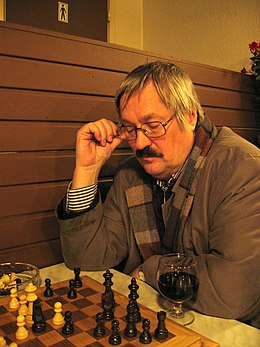
La versione finlandese del poeta e traduttore Pentti Saaritsa (nato a Helsinki il 29 dicembre 1941) è stata interpretata per la prima volta dal gruppo Agit Prop (e raccolta nell'album-collezione Agit Prop 1970-1977).


The Finnish version by the poet and translator Pentti Saaritsa (born in Helsinki on 29 December 1941) was first recorded by the band Agit Prop (included in the collection album Agit Prop 1970-1977). [RV]
Kuinka kaunis on rakkaani, katsokaa
kun arkileningissään hän askaroi
vain pieni kampa hiuksissaan
Kukaan ei muista kuinka kauniina hän kulkikaan
Kukaan ei muista kuinka kauniina hän kulkikaan
Kukaan ei muista kuinka kauniina hän kulkikaan
Oi, Auschwitzin neidot, oi, tyttäret Dachaun
te ehkä rakkaani näittekin
te ehkä rakkaani näittekin
te ehkä rakkaani näittekin
Me näimme kyllä naisen josta kerroit
Ei nähty häntä leningissään
ei ollut kampaa hiuksissaan
Kuinka kaunis on rakkaani, katsokaa
emonsa hellä hoiva suojanaan
veljensä suukko otsallaan
Kukaan ei muista kuinka kauniina hän kulkikaan
Kukaan ei muista kuinka kauniina hän kulkikaan
Kukaan ei muista kuinka kauniina hän kulkikaan
Mauthausenin neidot, oi, te Belsenin neidot
te ehkä rakkaani näittekin
te ehkä rakkaani näittekin
te ehkä rakkaani näittekin
Hän seisoi jäätyneellä aukiolla
ja poltinmerkki kädessänsä hehkui
keltainen tähti rinnassaan
Kuinka kaunis on rakkaani, katsokaa
emonsa hellä hoiva suojanaan
veljensä suukko otsallaan
Kukaan ei muista kuinka kauniina hän kulkikaan
Kukaan ei muista kuinka kauniina hän kulkikaan
Kukaan ei muista kuinka kauniina hän kulkikaan
inviata da Juha Rämö - 6/3/2015 - 10:25
Performed by / Interpretata da Arja Saijonmaa
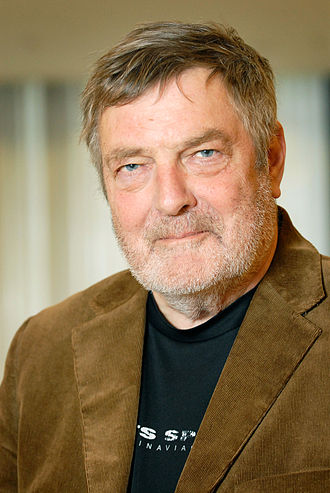
Claes Andersson (1937-2019) è stato un personaggio autenticamente poliedrico: finlandese di madrelingua svedese (nato a Helsinki il 30 maggio 1937 ed ivi morto il 24 luglio 2019) era psichiatra di professione, ma è stato anche prosatore, poeta, valente musicista jazz e deputato al Parlamento finlandese per l'Alleanza di Sinistra (Vasemmistoliitto / Vänsterförbundet) e per la Lega Democratica del Popolo Finlandese (Suomen Kansan Demokraattinen Liitto / Demokratiska Förbundet för Finlands Folk). E' stato deputato dal 1987 al 1999 e una seconda volta dal 2007 al 2008, in carica anche come Ministro della Cultura nel primo governo Lipponen. La sua traduzione in svedese della Trilogia di Mauthausen di Iakovos Kambanellis, musicata da Mikis Theodorakis, risale al 1972; fu interpretata, come molte altre canzoni greche dell'epoca in traduzione svedese e finlandese, dalla grande Arja Saijonmaa. Un video dell'interpretazione di Arja Saijonmaa (registrato a Stoccolma il 9 gennaio 1978) era presente in questa pagina, ma è stato purtroppo rimosso da YouTube e non è stato reintegrato. [RV]

Se hur vacker hon är, min älskade
i vardagsklänningen som hon har på sig
och med en liten kam i håret
Ingen kan minnas mer hur underderbar den flickan var
Ingen kan minnas mer hur underderbar den flickan var
Ingen kan minnas mer hur underderbar den flickan var
Ni, kvinnor från Auschwitz och ni Dachaus döttrar
säg, mötte ni min kära på er färd,
säg, mötte ni min kära på er färd,
kanske mötte ni min kära på er färd
Vi träffade nog kvinnan du beskriver
men vi såg henne utan klänning
utan kammen i sitt hår
Se hur vacker hon är, min älskade,
hon lever i sin moders ömma vård,
varsamt kysst utav sin broder
Ingen kan minnas mer hur underderbar den flickan var
Ingen kan minnas mer hur underderbar den flickan var
Ingen kan minnas mer hur underderbar den flickan var
Ni Mauthausens kvinnor och ni döttrar från Belsen
Säg, mötte ni min kära på er färd,
säg, mötte ni min kära på er färd,
kanske mötte ni min kära på er färd
Hon stod där på en frysen gård i kölden
med brännmärket glödande i handen,
den gula stjärnan på sitt bröst
Se, hur vacker hon är, min älskade
hon lever i sin moders ömma vård
varsamt kysst utav sin broder
Ingen kan minnas mer hur underderbar den flickan var
Ingen kan minnas mer hur underderbar den flickan var
Ingen kan minnas mer hur underderbar den flickan var
inviata da Juha Rämö - 8/5/2015 - 12:03
→ Dalfordítások
Milyen szép az én szerelmesem
Hétköznapi kis ruhájában
S egy kis fésűvel a hajában
Senki sem tudta, hogy ennyire szép lehet,
Senki sem tudta, hogy ennyire szép lehet,
Senki sem tudta, hogy ennyire szép lehet
Auschwitz leányai
Dachaunak leányai
Nem láttátok az én szerelmesem?
Láttuk őt elmenni egy távoli utazásra
De már nem volt rajta kis ruhája
S kis fésűje sem a hajában.
Milyen szép az én szerelmesem
Kit kényeztetett az édesanyja
S bátyja megannyi puszival
Senki sem tudta, hogy ennyire szép lehet
Senki sem tudta, hogy ennyire szép lehet
Senki sem tudta, hogy ennyire szép lehet
Mauthausen leányai
Belsennek leányai
Nem láttátok az én szerelmesem?
Láttuk őt állni a fagyos téren
Egy számmal az ő fehér kezén
S sárga csillag volt a szívén
Milyen szép az én szerelmesem
Kit kényeztetett az édesanyja
S bátyja megannyi puszival
Senki sem tudta, hogy ennyire szép lehet.
inviata da Riccardo Venturi - 10/10/2022 - 18:35
libbie (L. Trans.)
Sevgilim ne kadar güzel.
Her zaman giydiği elbisesiyle,
Ve saçında tokasıyla,
Onun çok güzel olduğunu kimse bilmezdi.
Onun çok güzel olduğunu kimse bilmezdi.
Onun çok güzel olduğunu kimse bilmezdi.
Auschwitz'in kızları
Dachau'nun kızları
Bir ihtimal, sevgilimi görmüş olabilir misin?
Bir ihtimal, sevgilimi görmüş olabilir misin?
Bir ihtimal, sevgilimi görmüş olabilir misin?
Onu uzun bir yolculukta gördük,
Artık ne o elbisesini giyiyordu,
Ne de saçında toka vardı.
Sevgilim ne kadar güzel,
Annesi onu şımartmış,
Abisi de öpücüklerle...
Onun çok güzel olduğunu kimse bilmezdi.
Onun çok güzel olduğunu kimse bilmezdi.
Onun çok güzel olduğunu kimse bilmezdi.
Mathausen'in kızları
Belsen'in kızları
Bir ihtimal, sevgilimi görmüş olabilir misin?
Bir ihtimal, sevgilimi görmüş olabilir misin?
Bir ihtimal, sevgilimi görmüş olabilir misin?
Onu donmuş avluda dikildiğini gördük,
Soluk renkli kolunda bir numarayla
Kalbinin üzerinde sarı bir yıldızla.
Sevgilim ne kadar güzel,
Annesi onu şımartmış,
Abisi de öpücüklerle...
Onun çok güzel olduğunu kimse bilmezdi.
Onun çok güzel olduğunu kimse bilmezdi.
Onun çok güzel olduğunu kimse bilmezdi.
Yuan Jinquan (L. Trans.)
我的挚爱是多么的美丽
她那每天都更换的连衣裙
还有那秀发上的发卡
没人知道她为何如此美丽
没人知道她为何如此美丽
没人知道她为何如此美丽
来自奥斯维辛的女孩
来自达豪的女孩
你可曾,看见我的挚爱
你可曾,看见我的挚爱
你可曾,看见我的挚爱
我们在长途行进中见过她
她再也没有穿过连衣裙
同样也没戴着发卡
我的挚爱是多么的美丽
被她母亲精心地打理
还有她兄弟的亲昵
没人知道她为何如此美丽
没人知道她为何如此美丽
没人知道她为何如此美丽
来自毛特豪森的女孩
来自贝尔森的女孩
你可曾,看见我的挚爱
你可曾,看见我的挚爱
你可曾,看见我的挚爱
我们看见她站立在寒冷的广场上
苍白的手臂戴着号码布
一颗黄星冲入她心脏
我的挚爱是多么的美丽
被她母亲精心地打理
还有她兄弟的亲昵
没人知道她为何如此美丽
没人知道她为何如此美丽
没人知道她为何如此美丽
Wŏ de zhì'ài shì duōme dì měilì
Tā nà měitiān dū gēnghuàn de liányīqún
Hái yŏu nà xiù fà shàng de fă kă
Méi rén zhīdào tā wèihé rúcĭ měilì
Méi rén zhīdào tā wèihé rúcĭ měilì
Méi rén zhīdào tā wèihé rúcĭ měilì
Láizì ào sī wéi xīn de nǚhái
Láizì dá háo de nǚhái
Nĭ kě céng, kànjiàn wŏ de zhì'ài
Nĭ kě céng, kànjiàn wŏ de zhì'ài
Nĭ kě céng, kànjiàn wŏ de zhì'ài
Wŏmen zài chángtú xíngjìn zhōng jiànguò tā
Tā zài yě méiyŏu chuānguò liányīqún
Tóngyàng yě méi dàizhe fàqiă
Wŏ de zhì'ài shì duōme dì měilì
Bèi tā mŭqīn jīngxīn dì dă lĭ
Hái yŏu tā xiōngdì de qīnnì
Méi rén zhīdào tā wèihé rúcĭ měilì
Méi rén zhīdào tā wèihé rúcĭ měilì
Méi rén zhīdào tā wèihé rúcĭ měilì
Láizì máo tè háo sēn de nǚhái
Láizì bèi'ěr sēn de nǚhái
Nĭ kě céng, kànjiàn wŏ de zhì'ài
Nĭ kě céng, kànjiàn wŏ de zhì'ài
Nĭ kě céng, kànjiàn wŏ de zhì'ài
Wŏmen kànjiàn tā zhànlì zài hánlěng de guăngchăng shàng
Cāngbái de shŏubì dàizhe hàomă bù
Yī kē huángxīngchōng rù tā xīnzàng
Wŏ de zhì'ài shì duōme dì měilì
Bèi tā mŭqīn jīngxīn dì dă lĭ
Hái yŏu tā xiōngdì de qīnnì
Méi rén zhīdào tā wèihé rúcĭ měilì
Méi rén zhīdào tā wèihé rúcĭ měilì
Méi rén zhīdào tā wèihé rúcĭ měilì
inviata da Riccardo Venturi - 11/10/2022 - 00:48
par Iacovos Kambanellis
Je suis toujours surpris de choses qui se passent »après«.
1965: La Chronique Mauthausen est en train d'être préparée pour sa publication par Themelio. L'Editeur Général Mimis Despotides, qui restera à jamais présent dans nos mémoires, a eu une idée, avec laquelle tant Mikis Theodorakis que moi nous étions immédiatement d'accord: écrire une collection de chansons qui seraient enregistrées, de sorte que le disque et le livre pourraient sortir en même temps. C'est exactement ce qui arriva.
En décembre de la même année, dans un théâtre, je lus des extraits de la Chronique, ensuite les chansons furent crées.
Une soirée inoubliable! Pas seulement pour moi, mais également pour Theodorakis et Farantouri.
1980: Je décide de retourner pour la première fois à Mauthausen. C'est le mois de mai, et les anciens détenus du camp, femmes et hommes de toute l'Europe, y ont organisé des retrouvailles.
Nous nous sommes rencontrés le jour même du 35e anniversaire de notre libération. En d'autres mots, le 5 mai, nous nous sommes rassemblés dans le village de Mauthausen pour marcher ensemble vers le camp. Nous, les 30.000 survivants, gardions le silence pendant cette montée vers le camp en signe de souvenir, d'amour et de respect pour les 240.000 qui étaient allés là vers leur Golgatha.
Comme nous nous rapprochions de l'enceinte du camp, j'entendis vaguement une musique venant de l'intérieur du camp, de la large cour intérieure. Elle a été transportée par l'air matinal tout le long du chemin vers les collines portant de nouveaux arbres.
Elle semblait vaguement familière, comme si je l'avais déjà entendue quelque part auparavant... J'avais raison. Quand nous nous rapprochions encore, je réalisai que j'étais en train d'écouter la voix de Maria Farantouri qui chantait »Filles d'Auschwitz, filles de Mauthausen, avez-vous par hasard vu mon amour?«
Plus tard, sans mentionner qui j'étais, j'allai au secrétariat et demandai quel était donc le chant que nous avions entendu le matin... Ils m'ont dit que c'était le thème musical du camp depuis des années.
Je connais l'effort considérable que Theodorakis a mis à produire le cycle Mauthausen et à le présenter en concert. Il était devenu célèbre dans de nombreux pays. Cependant, ma »rencontre« avec cette chanson, à cet endroit-là, à ce moment précis-là, eh bien ...
Depuis lors, j'ai rêvé de réaliser un concert sous ces prémices et à convaincre Theodorakis de partager ce rêve avec moi. Le concert a eu lieu en 1988 à Mauthausen, submergé par des dizaines de milliers de pèlerins, de pacifistes, de gens merveilleux qui étaient venus de partout, de partout...
Retour en 1965! Combien merveilleusement et créativement inconscients nous avons été.
© I. Kambanellis - traduit par © Guy Wagner
http://mikis-theodorakis.net/kambanf.htm
Riccardo Venturi - 21/1/2006 - 22:16
Gian Piero Testa - 16/4/2009 - 19:50
Riccardo Venturi - 23/4/2011 - 12:27
Riccardo Venturi - 18/7/2014 - 12:00
I wonder if there's anybody out there who could help me by listening to the audio sample below and identifying this song performed in Finnish by Arja Saijonmaa and titled "Ei kuule kaupunki" (The City Won't Hear). According to Finnish music database records, it's a Mikis Theodorakis song, but not knowing a word of Greek I have absolutely no idea which one.
So I would be most grateful for the Greek title of the song.
Juha Rämö - 7/3/2019 - 19:01
According to a handful of site sources, the Finnish song (from Arja Saijonmaa's 1972 album Laula kanssani toveri) appears to be translated from a song originally written in French ("Cité n'entend" or something like this, see here) and set to music by Mikis Theodorakis. According to other sources, the Finnish lyrics were written by Tapio Lipponen. It has proven impossible to find any French song called "Cité n'entend" (by the way, this is uncorrect French; I have tried with "La cité n'entend pas", a French rendering of Finnish "Ei kuule kaupunki", but in vain). I have also tried to translate the title into Greek ("Η πόλη δεν ακούει"), with no result. In my opinion, the music has something to do with that of Δραπετσώνα, but this is really vague. The complete Finnish lyrics of the song are unavailable: could you please transcribe them, so that further researches can be made? By the way, with my extremely poor Finnish, I think this song could be included in the site as an original Finnish song.
Riccardo Venturi - 8/3/2019 - 09:20
EI KUULE KAUPUNKI
Ei kuule kaupunki, ei näe kaupunki
Ei kuulla ihmisääntäkään voi
Vangittiin soittoni, kahlittiin soittoni
Ei näissä kahleissa sitra soi
Ei enää surra, kreikkalaiset
Siis barrikadiin miehet, naiset
Tartu aseisiin, yhdy musiikkiin
Sarat syvät iskemme kahleisiin
Ei kuule kaupunki, ei näe kaupunki
Ei kuulla ihmisääntäkään voi
Vangittiin soittoni, kahlittiin soittoni
Ei näissä kahleissa sitra soi
Ei enää surra, kreikkalaiset
Siis barrikadiin miehet, naiset
Tartu aseisiin, yhdy musiikkiin
Sarat syvät iskemme kahleisiin
Ei enää surra, kreikkalaiset
Siis barrikadiin miehet, naiset
Tartu aseisiin, yhdy musiikkiin
Sarat syvät iskemme kahleisiin
Juha Rämö - 8/3/2019 - 11:00
Riccardo Venturi - 8/3/2019 - 12:41
One more tiny bit of information I forgot to mention: according to Finnish archive records, both the music and lyrics of the song are attributed to Mikis Theodorakis.
I guess Arja Saijonmaa will remain my last resource.
Juha Rämö - 8/3/2019 - 15:47
In youtube one can find a video titled "Peace for Kids, CIMEA" where the same melody is played in a simple MIDI rendering.
I was able to find this reference to a CIMEA song with lyrics by Kostis Kosteas and music by Mikis Theodorakis:
Hannu Töyrylä - 6/10/2022 - 19:01
το πρώτο Βραβείο στο διαγωνισμό της Διεθνούς παιδικής Οργάνωσης CIMEA με το ποίημα «Λευτεριά και Ειρήνη» σε μουσική Μίκη Θεοδωράκη, το 1984
where «Λευτεριά και Ειρήνη» would be the title, but so far I was not able to find a correct match with these words.
Hannu Töyrylä - 6/10/2022 - 19:17
säröt syvät iskemme kahleisiin
which also makes more sense to me.
Hannu Töyrylä - 6/10/2022 - 19:26



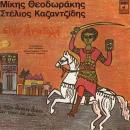
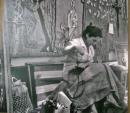
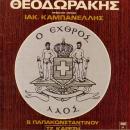




'Asma asmáton
[1965]
Στίχοι: Ιάκωβος Καμπανέλλης
Μουσική: Mikis Theodorakis
'Αλμπουμ: Η μπαλάντα του Μαουτχάουζεν - Κύκλος Φαραντούρη(1966)
Ερμηνευτές: Maria Farandouri
Άλλες ερμηνείες:
Γιώργος Ζωγράφος
Αλέξια
Testo: Ιάκωβος Καμπανέλλης
Musica: Mikis Theodorakis
Album: Η μπαλάντα του Μαουτχάουζεν / The Ballad of Mauthausen - Six Songs (1966)
Interpreti: Maria Farandouri
Altri interpreti:
Giorgos Zografos
Alexia
Lyrics: Ιάκωβος Καμπανέλλης
Music: Mikis Theodorakis
Album: Η μπαλάντα του Μαουτχάουζεν / La ballata di Mauthausen - Ciclo Farandouri (1966)
Performers: Maria Farandouri
Other performances:
Yorgos Zografos
Alexia
Η μπαλάντα του Μαουτχάουζεν - Κύκλος Φαραντούρη / The Ballad of Mauthausen - Six Songs (Farandouri Cycle) (1966)
Ιάκωβος Καμπανέλλης / Iakovos Kambanellis
Δημήτρης Χριστοδούλου / Dimitris Christodoulou
Γεράσιμος Σταύρου / Gerasimos Stavrou
Τάσος Λειβαδίτης / Tasos Livaditis
Νίκος Γκάτσος / Nikos Gatsos
Μαρία Φαραντούρη / Maria Farandouri
La ballata di Mauthausen è una storica composizione di Mikis Theodorakis (affidata nella registrazione originale del 1966 alla voce di Maria Farandouri comprendente, tra le altre cose, quattro celeberrimi testi di Iakovos Kambanellis. Si tratta dei quattro fondamentali testi tratti dalla “Tριλογία για Μαουτχάουζεν” (Trilogia di Mauthausen) del poeta e drammaturgo greco, musicati da Mikis Theodorakis, più altri sei testi di Nikos Gatsos, Gerasimos Stavrou, Dimitris Christoudoulou e Tasos Livaditis, già compresi nel "Ciclo Farandouri" inciso dalla cantante nel 1964. Senza nessun timore di esagerazione, la Ballata di Mauthausen contiene non solo tra le più celebri e toccanti canzoni in lingua greca (si pensi solo a Άσμα ασμάτων), ma anche tra quelle dedicate ai campi di sterminio a livello internazionale. Un album rimasto per sempre legato alla figura e alla voce di Maria Farandouri e un progetto importantissimo. che vede finalmente una luce definitiva in questo sito, dopo anni in cui è rimasto colpevolmente sparso tra vari autori e scollegato. Una sola cosa non può cambiare: la dedica che, a suo tempo, feci a mio nonno paterno, Bruno Venturi (1898-1978), che fu prigioniero e superstite di Mauthausen, la “Casa della dogana”. [RV]
1.Mαουτχάουζεν (The Ballad of Mauthausen) ονομάστηκε ο κύκλος τραγουδιών του Μίκη Θεοδωράκη, τα οποία αποτελούν μελοποίηση -κατά κύριο λόγο- του αφηγηματικού έργου Μαουτχάουζεν του Ιάκωβου Καμπανέλλη, στο οποίο περιγράφεται ο έρωτας δύο κρατουμένων στο ομώνυμο στρατόπεδο συγκέντρωσης. Κατά τη διάρκεια του Β' Παγκοσμίου Πολέμου ο ποιητής Ιάκωβος Καμπανέλλης φυλακίστηκε στο στρατόπεδο συγκέντρωσης του Μαουτχάουζεν. Το 1965 έγραψε τέσσερα ποιήματα που αφορούσαν εκείνη την περίοδο και ζήτησε από τον καλό του φίλο και συνθέτη Μίκη Θεοδωράκη να τα μελοποιήσει. Ο Θεοδωράκης, ο οποίος είχε φυλακιστεί και ο ίδιος κατή τη διάρκεια της Γερμανικής κατοχής σε γερμανικές και ιταλικές φυλακές, δημιούργησε όμορφες και αξέχαστες μελωδίες που αναδεικνύουν τα συγκινητικά ποιήματα του Καμπανέλλη. Εκείνα τα ποιήματα έγιναν έκτοτε παγκοσμίως γνωστά ως η τριλογία του Μαουτχάουζεν. Η συμβολή της τραγουδίστριας Μαρίας Φαραντούρη ήταν καθοριστική. Στην αρχική ελληνική έκδοση του έργου, που ηχογραφήθηκε το 1966, περιλαμβάνονται τέσσερα μελοποιημένα ποιήματα του Καμπανέλλη («Άσμα ασμάτων», «Ο Αντώνης», «Ο δραπέτης» και «Όταν τελειώσει ο πόλεμος») καθώς και άλλων ποιητών («Κουράστηκα να σε κρατώ» του Δημήτρη Χριστοδούλου, «Ο ίσκιος έπεσε βαρύς» του Γεράσιμου Σταύρου, «Πήρα τους δρόμους του ουρανού» του Τάσου Λειβαδίτη, και «Στου κόσμου την ανηφοριά», «Το εκκρεμές» και «Τ' όνειρο καπνός» του Νίκου Γκάτσου). Τραγουδάει η Μαρία Φαραντούρη.
2.Κατά τη διάρκεια του Β' Παγκοσμίου Πολέμου ο ποιητής Ιάκωβος Καμπανέλλης φυλακίστηκε στο στρατόπεδο συγκέντρωσης του Μαουτχάουζεν. Το 1965 έγραψε τέσσερα ποιήματα που αφορούσαν εκείνη την περίοδο και ζήτησε από τον καλό του φίλο και συνθέτη Μίκη Θεοδωράκη να τα μελοποιήσει. Ο Θεοδωράκης, ο οποίος είχε φυλακιστεί και ο ίδιος κατή τη διάρκεια της Γερμανικής κατοχής σε γερμανικές και ιταλικές φυλακές, δημιούργησε όμορφες και αξέχαστες μελωδίες που αναδεικνύουν τα συγκινητικά ποιήματα του Καμπανέλλη. Εκείνα τα ποιήματα έγιναν έκτοτε παγκοσμίως γνωστά ως η τριλογία του Μαουτχάουζεν. Η συμβολή της τραγουδίστριας Μαρίας Φαραντούρη ήταν καθοριστική. Στην αρχική ελληνική έκδοση του έργου, που ηχογραφήθηκε το 1966, περιλαμβάνονται τέσσερα μελοποιημένα ποιήματα του Καμπανέλλη («Άσμα ασμάτων», Ο Αντώνης, Ο δραπέτης και 'Αμα τελειώσει ο πόλεμος) καθώς και άλλων ποιητών (Κουράστηκα να σε κρατώ του Δημήτρη Χριστοδούλου, «Ο ίσκιος έπεσε βαρύς» του Γεράσιμου Σταύρου, Πήρα τους δρόμους τ’ ουρανού του Τάσου Λειβαδίτη, και Στου κόσμου την ανηφοριά, Το εκκρεμές και Τ’όνειρο καπνός του Νίκου Γκάτσου). Τραγουδάει η Μαρία Φαραντούρη.
The Ballad of Mauthausen is an historical composition by Mikis Theodorakis (originally recorded 1966 by Maria Farandouri including, four celebrated poems by the Greek poet and playwright Iakovos Kambanellis, drawn from his “Tριλογία για Μαουτχάουζεν” (Mauthausen Trilogy), and other six poems by Nikos Gatsos, Gerasimos Stavrou, Dimitris Christoudoulou and Tasos Livaditis, already recorded 1964 in the so-called "Farandouri Cycle". The Ballad of Mauthausen includes, with no fear of exaggeration, not only some among the most famous and touching songs in the Greek language, but also among those dedicated to the extermination camps in any language. This album, indissolubly associated with Maria Farandouri's figure and voice, is a most important project of our website, now totally reshaped and restructured after years during which its songs have been scattered among various authors. One thing cannot change, however: the dedication I made to my grandfather, Bruno Venturi (1898-1978), who was a prisoner in and a survivor of Mauthausen, the “Customs House”. [RV]
'Αμα τελειώσει ο πόλεμος
Άσμα ασμάτων
Ο Αντώνης
Ο δραπέτης
b. Κύκλος Φαραντούρη / Six Songs (Farandouri Cycle)
Κουράστηκα να σε κρατώ
Ο ίσκιος έπεσε βαρύς
Πήρα τους δρόμους τ’ ουρανού
Στου κόσμου την ανηφοριά
Τ’όνειρο καπνός
Το εκκρεμές
QUICK INDEX OF VERSIONS AVAILABLE [17 languages up to now]
Performed in Greek by Joan Baez, July 1983
Italiano 1 (Sandro Tuminelli, 1970) - Italiano 2 (Alessio Miranda, 2005) - Inglese 1 (Julie Dennis, 1966) - Inglese 2 - Ebraico (Elinoar Moav Veniadis, 1988) - Tedesco 1 (Gisela May, 1988) - Tedesco 2 (kommunisten.de) - Tedesco 3 (Elena Strubakis, 2013) - Francese (Gérard Pierrat) - Spagnolo 1 (Costas Palamides - Tanya Lomnitz, 2016) - Spagnolo 2 (curros_mujer) - Sardo (Hampsicora -Marco Serra-) - Neerlandese (Lennaert Nijgh, 1967) - Portoghese (Carlos João Correia, 2007) - Russo - Polacco (Piotruś) - Serbo (Ijkostic) - Finlandese (Pentti Saaritsa, 1972) - Svedese (Claes Andersson, 1972) - Ungherese - Turco (libbie) - Cinese (Yuan Jinquan)
Italian 1 (Sandro Tuminelli, 1970) - Italian 2 (Alessio Miranda, 2005) - English 1 (Julie Dennis, 1966) - English 2 - Hebrew (Elinoar Moav Veniadis, 1988) - German 1 (Gisela May, 1988) - - German 2 (kommunisten.de) - German 3 (Elena Strubakis, 2013) - French (Gérard Pierrat) - Spanish 1 (Costas Palamides - Tanya Lomnitz, 2016) - Spanish 2 (curros_mujer) - Sardinian (Hampsicora -Marco Serra-) - Dutch (Lennaert Nijgh, 1967) - Portuguese (Carlos João Correia, 2007) - Russian - Polish (Piotruś) - Serbian (Ijkostic) - Finnish (Pentti Saaritsa, 1972) - Swedish (Claes Andersson, 1972) - Hungarian - Turkish (libbie) - Chinese (Yuan Jinquan)